Key takeaways:
- Reflective assessments promote a deeper understanding of learning by encouraging self-evaluation of experiences and emotional engagement.
- Creating a supportive environment and using structured prompts can enhance the effectiveness of reflective assessments.
- Utilizing technology, such as digital journaling or collaborative forums, can facilitate engagement and authenticity in reflections.
- Overcoming challenges in reflective assessments requires fostering a safe space for vulnerability and practicing empathy during feedback.
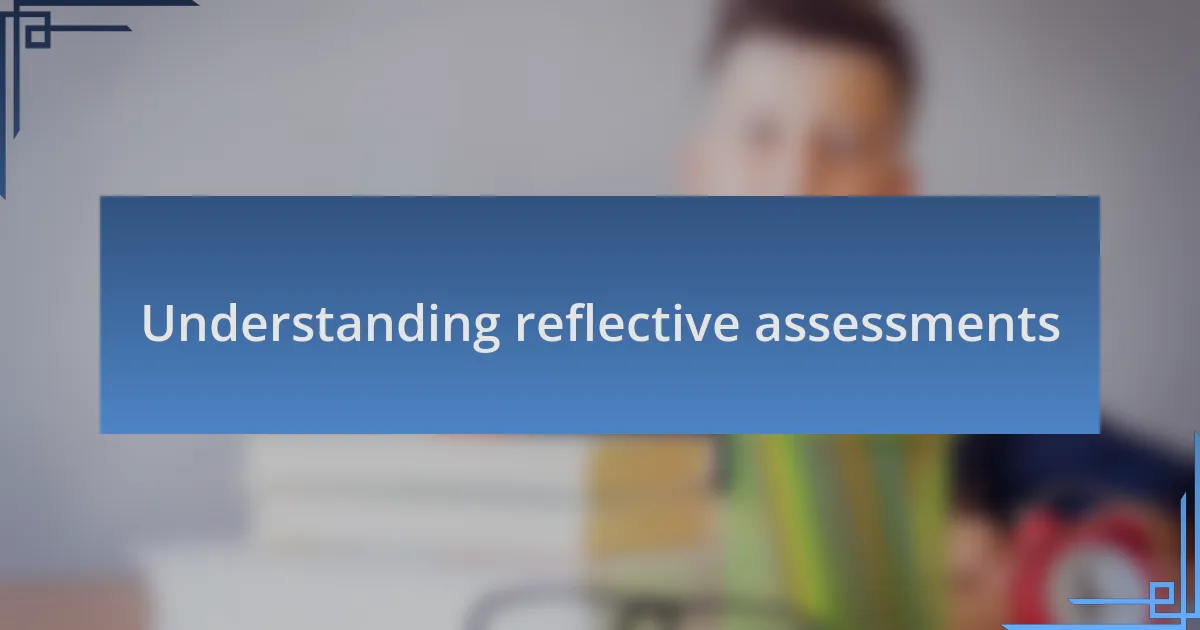
Understanding reflective assessments
Reflective assessments are a powerful tool for understanding one’s learning journey. I remember a time when I was unsure about my own progress in a training course. It was only after engaging in self-reflection that I realized my strengths and areas for improvement, which totally shifted my perspective on learning.
Essentially, reflective assessments allow individuals to critically evaluate their experiences and learning processes. Have you ever considered how your thoughts shape your growth? By thoughtfully considering what worked and what didn’t, we can make informed decisions moving forward, leading to deeper understanding and more meaningful development.
A key aspect of reflective assessments is their ability to foster emotional connection to the learning material. I find that when learners identify with their struggles and victories, it creates a sense of ownership over their educational experiences. This emotional engagement not only enhances retention but also builds confidence, prompting learners to take active roles in their continuous improvement.
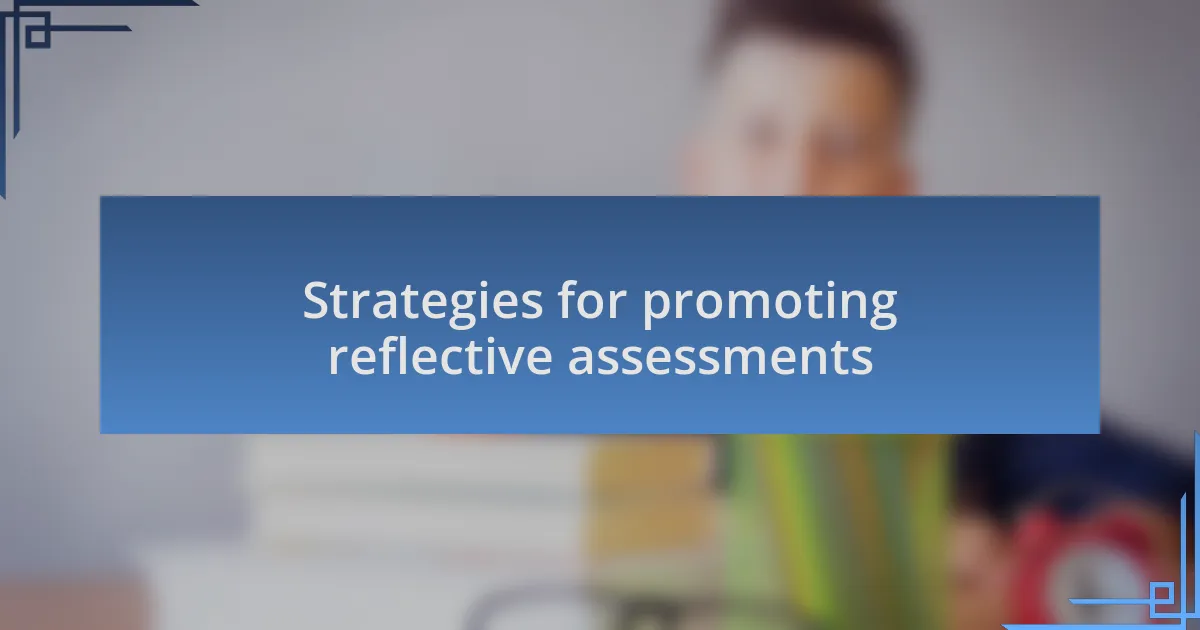
Strategies for promoting reflective assessments
Creating an environment that encourages self-reflection can significantly enhance the effectiveness of reflective assessments. I remember a workshop where participants were invited to share their personal learning stories. This openness fostered a warm, supportive atmosphere that empowered everyone to analyze their experiences without fear of judgment. By encouraging storytelling, we not only created a safe space but also highlighted the value of diverse perspectives in the reflective process.
Another strategy is to integrate structured reflection prompts into the assessment process. I often use specific questions that guide learners to think critically about their experiences. Questions like, “What challenged you the most during this assignment?” or “How can you apply what you learned here in real-life situations?” provoke deeper thinking and lead to richer reflections. I’ve noticed that learners appreciate these prompts because they can articulate their thoughts more clearly, making the assessment not just a task, but a meaningful exercise in self-discovery.
Moreover, incorporating technology can be a game-changer for promoting reflective assessments. For example, I once introduced a digital journaling app in a training program, where participants could track their learning in real-time. The convenience and accessibility of this tool helped many stay engaged with their reflections, and I witnessed how those who regularly used the app gained insights into their learning patterns more rapidly. Have you thought about how technology might enhance your own reflective practices? The possibilities are vast if we embrace the tools at our fingertips.
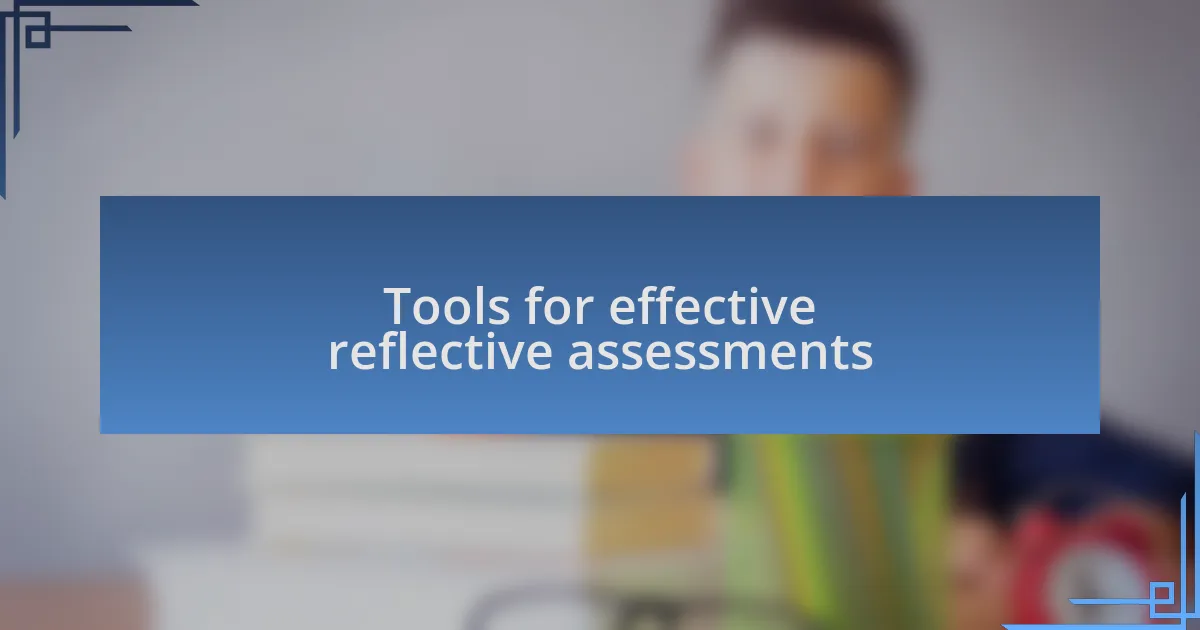
Tools for effective reflective assessments
Using digital platforms for reflective assessments can significantly enhance the learning experience. I recall incorporating a collaborative online forum into a workshop where participants could post their reflections anonymously. It was incredible to see how the shared space sparked connections among attendees, leading to collective insights. When people feel they can share thoughts without personal exposure, they often dive deeper into their reflections. Have you considered how anonymity might inspire authenticity in your reflections?
Another tool that has proven effective is video reflection. In one training session, I encouraged participants to record short video entries discussing their learning experiences. Seeing their emotions and expressions added a layer of depth to their reflections that written words often miss. Watching themselves process their thoughts brought many to new realizations. It made me wonder: how often do we underestimate the power of non-verbal communication in reflection?
Lastly, using visual aids like mind maps can transform reflective assessments into dynamic visuals of thought processes. I remember introducing mind mapping during a training session, and the participants were fascinated by how it helped them organize their thoughts and emotions visually. The colorful connections on paper encouraged creativity and discovery. How could you use visual tools to represent your reflective journeys more vividly? The right tools not only make the process easier but can also unlock deeper understanding and insights.
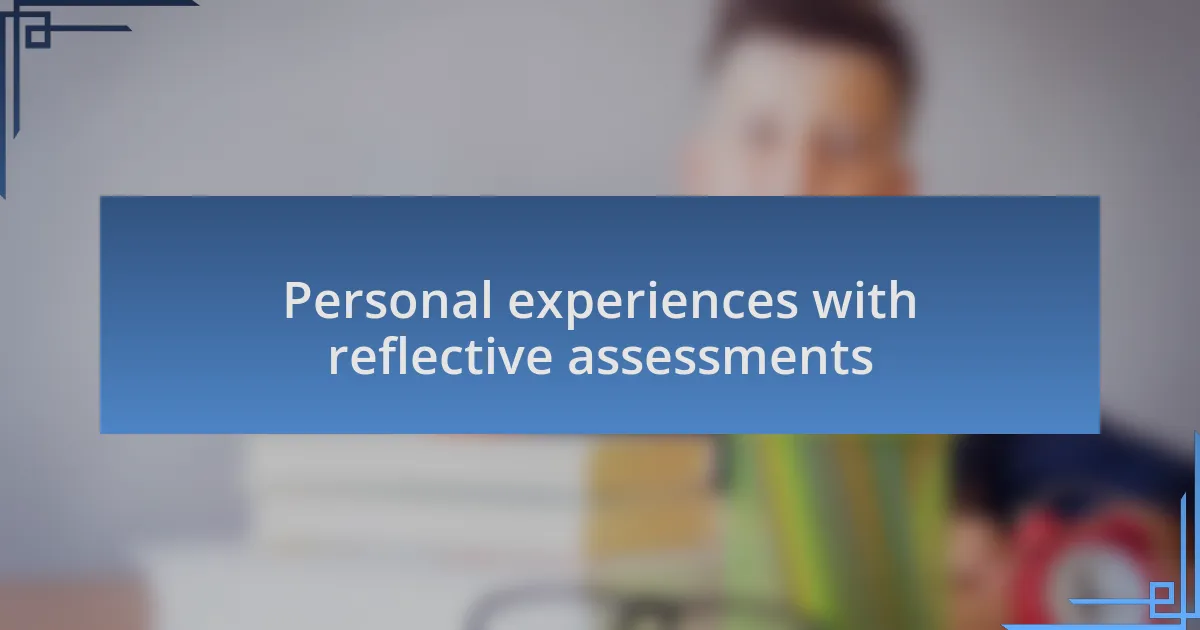
Personal experiences with reflective assessments
Reflective assessments have always been a journey for me, one that often reveals unexpected layers of self of understanding. I recall a moment during a group discussion where I hesitated to share my thoughts. When I finally spoke up, I realized my reflections not only resonated with my experiences but also echoed the sentiments of others. It’s fascinating how the act of sharing can build a community around our vulnerabilities; have you ever experienced that sense of connection simply by voicing your thoughts?
In another instance, I had the opportunity to engage in peer evaluations, which truly transformed my perspective on reflection. Initially, I found it daunting to assess others, fearing my judgment might be too harsh. Yet, as I began to articulate my feedback, I discovered that being reflective for others allowed me to critically analyze my own journey. It was this two-way street of reflection that led me to ask: are we more insightful about our experiences when we help others uncover theirs?
One memorable experience involved creating a reflective journal over several months. Initially, I treated it as just another task, but as I poured my thoughts onto the pages, it became a safe haven for my emotions and discoveries. Suddenly, I found patterns in my writing that led to profound insights about my learning process. This evolution made me wonder: how powerful could structured reflection be if treated not as an assignment, but as an essential part of personal growth?
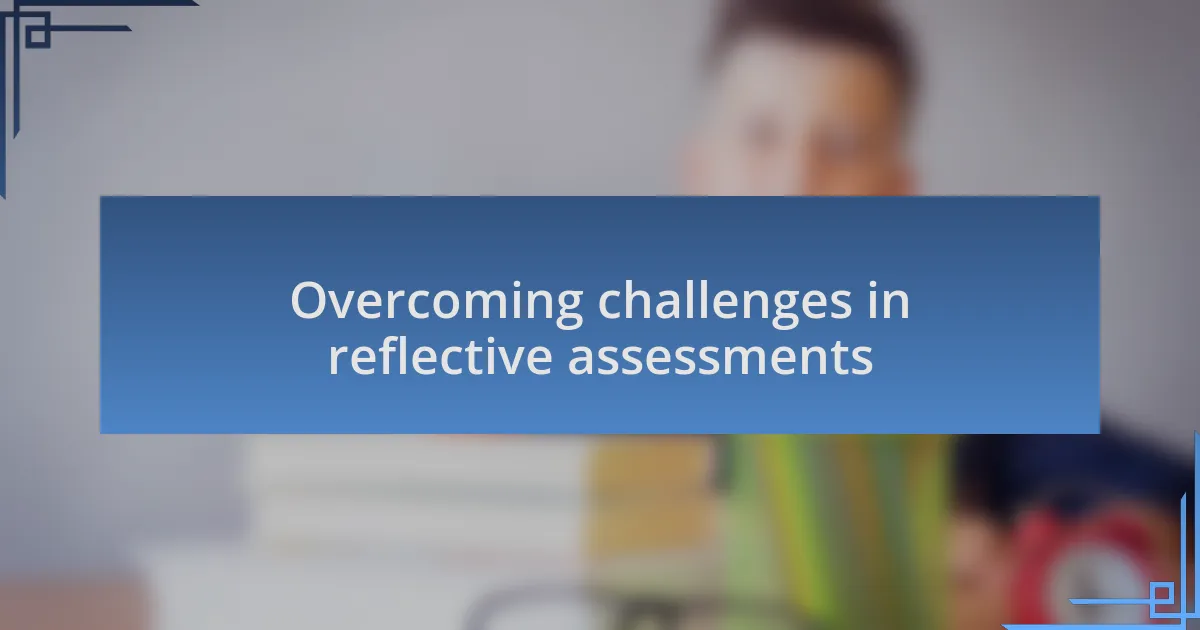
Overcoming challenges in reflective assessments
Reflective assessments can be challenging, especially when confronting our own biases and insecurities. I remember struggling with self-doubt while drafting my initial reflections, questioning whether my thoughts held any real value. It took time and encouragement from peers to realize that honesty in reflection often leads to the most meaningful insights. Have you ever felt that same hesitation to be vulnerable, only to find strength in authenticity?
Another challenge I faced was balancing the need for constructive criticism with empathy during peer assessments. I once found myself torn between offering honest feedback and not wanting to hurt a friend’s feelings. This dilemma pushed me to develop a more compassionate approach, one that sees feedback as a tool for growth rather than judgment. I began to wonder: how might our reflections improve if we allow kindness to guide our evaluations?
Finally, I discovered that the environment we create for reflective assessments plays a crucial role in overcoming obstacles. In a particularly supportive workshop, the openness of my peers inspired me to share deeply personal insights. This experience taught me the importance of fostering a safe space for reflection, prompting me to ask myself: how can we design our assessment processes to encourage vulnerability and honesty?